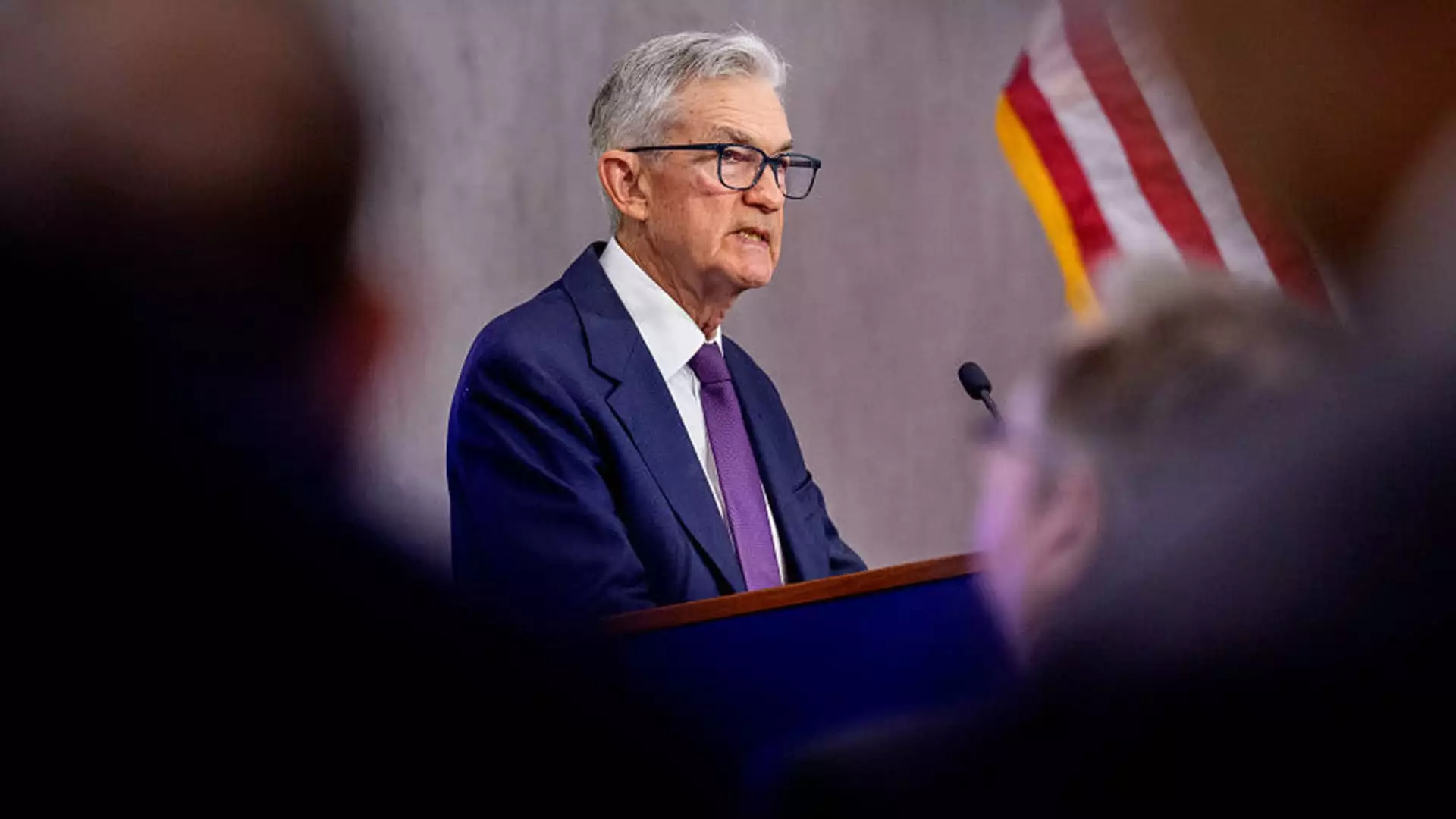In the ever-tumultuous landscape of American politics, few figures have stirred the pot quite like former President Donald Trump. His latest outcry directed at Federal Reserve Chairman Jerome Powell unveils not just a moment of frustration but a deeper concern regarding the strategic direction of U.S. economic policy. After the disappointing ADP employment report revealed a mere increase of 37,000 jobs—ominously falling short of the projected 110,000—Trump unleashed a flurry of criticism on social media, calling Powell “unbelievable” for not acting decisively to cut interest rates. This outpouring of emotion highlights not only Trump’s volatile personality but also the precariousness of monetary policy as a tool for stimulating economic growth.
As Trump pointed out, Europe has taken the plunge, lowering interest rates a staggering nine times, ostensibly to invigorate their economic prospects amidst sluggish growth. However, this begs the question: is emulation the best path forward? Economies are not one-size-fits-all, and what works in Europe may not necessarily translate to the complexities of the American economy. Trump’s calls for aggressive rate cuts reflect a troubling trend; his responsiveness to immediate economic indicators overlooks the importance of sustainable long-term strategies that focus on resilience rather than short-term gratification.
The Role of Data in Economic Policy
Underlying Trump’s fervent insistence on rapid monetary easing is a fundamental misunderstanding of how the Federal Reserve’s policy must operate—anchored in objective economic data, not the whims of political expediency. Powell’s insistence on relying upon statistical measures reveals a tension between political beliefs and economic realities. By advocating for rate cuts based only on the latest disheartening job figures, Trump risks leading the nation down a path governed by impulse rather than informed, strategic decision-making.
While the ADP report serves as a barometer, the forthcoming Bureau of Labor Statistics (BLS) report may provide a different perspective. Estimates for this report anticipate an increase of 125,000 jobs for May, signaling a need for patience amidst fluctuating data. Trump’s impatience runs the danger of fostering an economic environment built on reactive rather than proactive governance—a dangerous precedent in times defined by rapid change and uncertainty.
The Fragility of Economic Leadership
Trump’s relationship with Powell has shifted from hopeful cooperation to confrontational discord. After a private meeting, in which Trump ostensibly pressed Powell on the need for lowered rates, it has become clear that the former President perceives the Fed’s direction as a personal affront and a strategic miscalculation. By labeling Powell as “Too Late,” Trump not only insults the Fed Chairman but diminishes the vital role that objective analysis and restraint play in prevailing over emotional impulses in policymaking.
Moreover, the political ramifications of Trump’s aggressive stance on monetary policy raise critical concerns. If economic management becomes a battleground for political rivalry, the repercussions for the average American could be devastating. A healthy economy relies upon stable interest rates and a clear policy framework. Should rates be altered based on political whims, we risk an unsettling cycle of boom and bust that will ultimately do more harm than good.
The Broader Implications of Trump’s Economic Rhetoric
Trump’s ongoing criticism of monetary policy serves a dual purpose: fostering immediate electoral support among his base while simultaneously undermining institutional integrity. A President who considers firing the Fed chair is emblematic of a troubling trend where political objectives override crucial economic wisdom. The complexities of global financial markets mean that unilateral actions—like those hinted at by Trump—could provoke adverse reactions from both domestic and international stakeholders.
As other countries, such as those in the eurozone, consistently lower rates to stave off economic malaise, comparisons fall short. The United States faces unique challenges that necessitate a calibrated approach rather than a rash race to the bottom. As geopolitical tensions and trade battles loom, Trump’s erratic approach poses not only a question of policy efficacy but also of national economic sovereignty.
By veering dangerously close to politicizing the Federal Reserve, Trump runs the risk of jeopardizing key economic institutions upon which the nation relies. The responsibility lies not merely with economic boards and advisors; the very fabric of financial credibility hinges on the de-politicization of monetary policy—an endeavor that politics as usual may ultimately endanger.

Leave a Reply